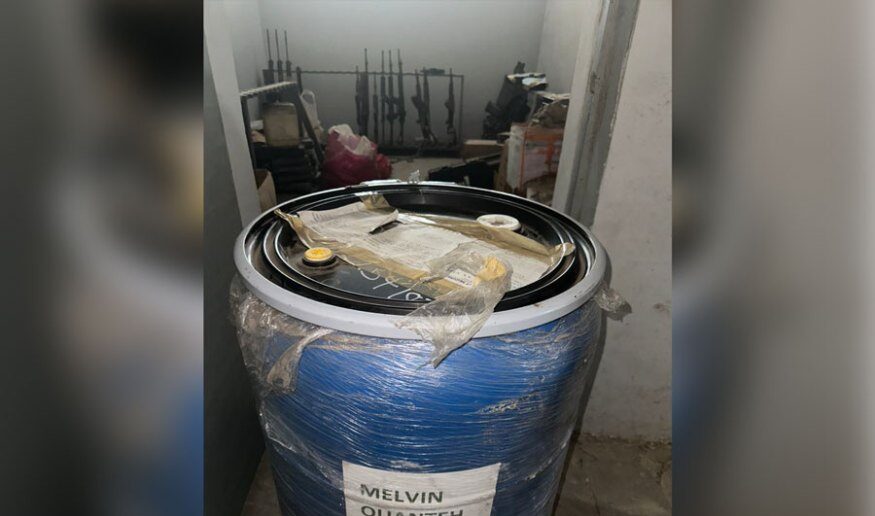A federal grand jury convicted a Fort Liberty Army Major for smuggling guns in rice barrels to Ghana, according to U.S. Attorney Michael Easley.
Kojo Owusu Dartey, 42, was found guilty by a federal jury of dealing firearms without a license, delivering firearms without notice to the carrier, smuggling goods from the United States, making false declarations before the court, and conspiracy.
Between June 28 and July 2, 2021, Dartey bought seven firearms in the Fort Liberty area and tasked a U.S. Army Staff Sergeant at Fort Campbell, Kentucky, to buy three firearms there and send them to Dartey in North Carolina, according to court documents.
Dartey then hid the firearms, including multiple handguns, an AR-15, 50-round magazines, suppressors, and a combat shotgun inside blue barrels underneath rice and household goods. The U.S. Attorney’s Office said Dartey smuggled the barrels out of the Port of Baltimore, Maryland, on a container ship to the Port of Tema in Ghana.
Kojo Owusu Dartey was found guilty for smuggling guns in rice barrels to Ghana. (Photo from United States Attorney for the Eastern District of North Carolina)
The Ghana Revenue Authority recovered the firearms and reported the seizure to the DEA attaché in Ghana and the Bureau of Alcohol, Tobacco, Firearms and Explosives (ATF) Baltimore Field Division.
At the same time, Dartey was a witness in the trial of U.S. v. Agyapong. This case involved a 16-defendant marriage fraud scheme between soldiers on Fort Liberty and foreign nationals from Ghana that Dartey had tipped off officials to.
Easley said in preparation for the trial, Dartey lied to federal law enforcement about his sexual relationship with a defense witness and lied on the stand and under oath about the relationship.
Chief U.S. District Judge Richard E. Myers II accepted the jury’s guilty verdict. Dartey will be sentenced on July 23 and faces a maximum of 20 years in prison.
The ATF, Army Criminal Investigation Division and the U.S. Department of Commerce’s Office of Export Enforcement investigated the case. Assistant U.S. Attorney Gabriel J. Diaz prosecuted the case with technical assistance from David Ryan, DOJ Counterintelligence and Export Control Section.




